 Ohio's Republican Sec. of State Jon Husted has called on fellow Republicans in the legislature to repeal their controversial Election Reform bill, rather than see it face a voter referendum currently slated for this November's ballot.
Ohio's Republican Sec. of State Jon Husted has called on fellow Republicans in the legislature to repeal their controversial Election Reform bill, rather than see it face a voter referendum currently slated for this November's ballot.
The law, if it is not rejected by voters, will severely shorten the time for Early Voting and will ban it all together on the Sunday before Election Day in the Buckeye State, in a way that is geared towards suppressing Democratic votes. The bill also includes other major barriers to voting such as a prohibition on county Boards of Election mailing absentee ballot request forms to voters and a ban on poll workers instructing voters where their correct precinct is located. Opponents of the law have noted that some 200,000 voters in Columbus alone --- or 4 in 10 votes cast there in 2008 --- would have had to cast their vote in a different manner in 2012 has the law been allowed to take effect this year as planned.
Husted, the state's chief election official, elected in 2010, had worked with GOP legislators in crafting the bill which was passed and signed by Republican Gov. John Kasich last year, before being met with a wildly successful petition campaign in support of a "voter veto" of the bill. That campaign, led by progressive groups such as Fair Elections Ohio, garnered more than 300,000 signatures, or more than 75,000 above the total required to put the bill on hold and place it on the ballot for a popular vote. The result is that, last December, the bill was officially suspended for 2012, when Republicans had hoped it might help suppress Democratic-leaning voters in the swing-state's Presidential election. Instead, the law is now set to be on the November 2012 ballot for voter approval or rejection.
The Sec. of State called on fellow Republicans to overturn the bill in the legislature, scrap it, and revisit the issue after the 2012 election, rather than allowing it to remain on the ballot in November. Those remarks have raised the hackles of some powerful GOP lawmakers in Ohio.
Husted is developing a record for standing against some of the most radical elements of his own party's agenda in some cases, as seen, for example, in his outspoken condemnation of an attempt to institute polling place Photo ID restrictions on voters in the same bill last year, as well as a bi-partisan effort in 2007, with the previous Democratic Sec. of State, to do away with 100% unverifiable touch-screen voting systems in the Buckeye State...


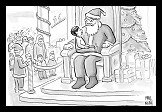 Sunday 'Happyish Holidays' Toons
Sunday 'Happyish Holidays' Toons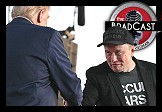 Trump Gets Trumped in Our Musky Year-End Roundtable: 'BradCast' 12/19/24
Trump Gets Trumped in Our Musky Year-End Roundtable: 'BradCast' 12/19/24 'Green News Report' 12/17/24
'Green News Report' 12/17/24
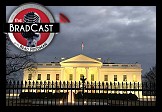 About Some of Trump's 'Day One' Threats: 'BradCast' 12/18/24
About Some of Trump's 'Day One' Threats: 'BradCast' 12/18/24 Trump Family Corruption Cometh...So Does Our Opposition: 'BradCast' 12/17/24
Trump Family Corruption Cometh...So Does Our Opposition: 'BradCast' 12/17/24 'Green News Report' 12/17/24
'Green News Report' 12/17/24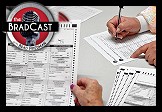 Mistallied Contests Found in OH County, as Oligarchy Rises in D.C.: 'BradCast' 12/16
Mistallied Contests Found in OH County, as Oligarchy Rises in D.C.: 'BradCast' 12/16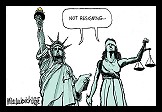 Sunday 'Barrel Bottom' Toons
Sunday 'Barrel Bottom' Toons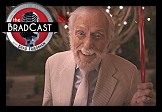 Trump Admits He Can't Lower Grocery Prices (Biden Just Did): 'BradCast' 12/12/24
Trump Admits He Can't Lower Grocery Prices (Biden Just Did): 'BradCast' 12/12/24 'Green News Report' 12/12/24
'Green News Report' 12/12/24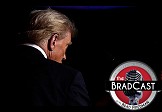 What 'Unprecedented and Powerful Mandate'?: 'BradCast' 12/11/24
What 'Unprecedented and Powerful Mandate'?: 'BradCast' 12/11/24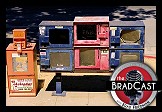 Trump Barely Won Natl'y, But Won 'News Deserts' By Landslide: 'BradCast' 12/10/24
Trump Barely Won Natl'y, But Won 'News Deserts' By Landslide: 'BradCast' 12/10/24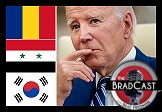 Bad Weekend for Authoritarians; Also: Pardon or Not?: 'BradCast' 12/9/24
Bad Weekend for Authoritarians; Also: Pardon or Not?: 'BradCast' 12/9/24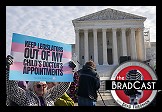 Fox 'News' and GOP Get Their Hateful War on Trans Kids at SCOTUS: 'BradCast' 12/5/24
Fox 'News' and GOP Get Their Hateful War on Trans Kids at SCOTUS: 'BradCast' 12/5/24 'Mind Boggles at Potential Corruption' in Trump Scheme: 'BradCast' 12/4/24
'Mind Boggles at Potential Corruption' in Trump Scheme: 'BradCast' 12/4/24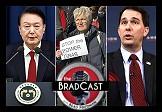 In Defense of Democracy from S. Korea to N. Carolina: 'BradCast' 12/3/24
In Defense of Democracy from S. Korea to N. Carolina: 'BradCast' 12/3/24 Hunter's Pardon: 'BradCast' 12/2/24
Hunter's Pardon: 'BradCast' 12/2/24 How (and Why!) to 'Extend Olive Branch' to MAGA Members: 'BradCast' 11/21/24
How (and Why!) to 'Extend Olive Branch' to MAGA Members: 'BradCast' 11/21/24
 VA GOP VOTER REG FRAUDSTER OFF HOOK
VA GOP VOTER REG FRAUDSTER OFF HOOK Criminal GOP Voter Registration Fraud Probe Expanding in VA
Criminal GOP Voter Registration Fraud Probe Expanding in VA DOJ PROBE SOUGHT AFTER VA ARREST
DOJ PROBE SOUGHT AFTER VA ARREST Arrest in VA: GOP Voter Reg Scandal Widens
Arrest in VA: GOP Voter Reg Scandal Widens ALL TOGETHER: ROVE, SPROUL, KOCHS, RNC
ALL TOGETHER: ROVE, SPROUL, KOCHS, RNC LATimes: RNC's 'Fired' Sproul Working for Repubs in 'as Many as 30 States'
LATimes: RNC's 'Fired' Sproul Working for Repubs in 'as Many as 30 States' 'Fired' Sproul Group 'Cloned', Still Working for Republicans in At Least 10 States
'Fired' Sproul Group 'Cloned', Still Working for Republicans in At Least 10 States FINALLY: FOX ON GOP REG FRAUD SCANDAL
FINALLY: FOX ON GOP REG FRAUD SCANDAL COLORADO FOLLOWS FLORIDA WITH GOP CRIMINAL INVESTIGATION
COLORADO FOLLOWS FLORIDA WITH GOP CRIMINAL INVESTIGATION CRIMINAL PROBE LAUNCHED INTO GOP VOTER REGISTRATION FRAUD SCANDAL IN FL
CRIMINAL PROBE LAUNCHED INTO GOP VOTER REGISTRATION FRAUD SCANDAL IN FL Brad Breaks PA Photo ID & GOP Registration Fraud Scandal News on Hartmann TV
Brad Breaks PA Photo ID & GOP Registration Fraud Scandal News on Hartmann TV  CAUGHT ON TAPE: COORDINATED NATIONWIDE GOP VOTER REG SCAM
CAUGHT ON TAPE: COORDINATED NATIONWIDE GOP VOTER REG SCAM CRIMINAL ELECTION FRAUD COMPLAINT FILED AGAINST GOP 'FRAUD' FIRM
CRIMINAL ELECTION FRAUD COMPLAINT FILED AGAINST GOP 'FRAUD' FIRM RICK SCOTT GETS ROLLED IN GOP REGISTRATION FRAUD SCANDAL
RICK SCOTT GETS ROLLED IN GOP REGISTRATION FRAUD SCANDAL VIDEO: Brad Breaks GOP Reg Fraud Scandal on Hartmann TV
VIDEO: Brad Breaks GOP Reg Fraud Scandal on Hartmann TV RNC FIRES NATIONAL VOTER REGISTRATION FIRM FOR FRAUD
RNC FIRES NATIONAL VOTER REGISTRATION FIRM FOR FRAUD EXCLUSIVE: Intvw w/ FL Official Who First Discovered GOP Reg Fraud
EXCLUSIVE: Intvw w/ FL Official Who First Discovered GOP Reg Fraud GOP REGISTRATION FRAUD FOUND IN FL
GOP REGISTRATION FRAUD FOUND IN FL






















 The voting systems in use for the nation's first three all-important electoral contests in the 2012 primary --- from Iowa to New Hampshire to Saturday's South Carolina Primary --- go from pretty great to intolerably horrible. And then comes Florida, which deserves its very own special category, thereafter.
The voting systems in use for the nation's first three all-important electoral contests in the 2012 primary --- from Iowa to New Hampshire to Saturday's South Carolina Primary --- go from pretty great to intolerably horrible. And then comes Florida, which deserves its very own special category, thereafter. Even the GOP establishment --- which had long decided that Mitt Romney was their best hope to win back the White House in 2012 among those currently running --- could not overcome the intent of the voters as transparently
Even the GOP establishment --- which had long decided that Mitt Romney was their best hope to win back the White House in 2012 among those currently running --- could not overcome the intent of the voters as transparently 
 Fed up with the hard-right's oligarchic, union busting agenda, on Tuesday, opponents of Wisconsin's Gov. Scott Walker (R)
Fed up with the hard-right's oligarchic, union busting agenda, on Tuesday, opponents of Wisconsin's Gov. Scott Walker (R) 

 We'll be BradCasting all the horror LIVE from 9pm-Mid ET (6p-9p PT), coast-to-coast and around the uprising globe from the studios of L.A.'s KTLK am1150 in beautiful downtown Burbank. Join us by tuning in, chatting in, Tweeting in and calling in! Our LIVE chat room will be up and rolling right here at
We'll be BradCasting all the horror LIVE from 9pm-Mid ET (6p-9p PT), coast-to-coast and around the uprising globe from the studios of L.A.'s KTLK am1150 in beautiful downtown Burbank. Join us by tuning in, chatting in, Tweeting in and calling in! Our LIVE chat room will be up and rolling right here at  I am old enough to remember not only the civil rights movement but that, amongst all the Southern Jim Crow states, Mississippi had absolutely the worst reputation. It was the state where, in 1955,
I am old enough to remember not only the civil rights movement but that, amongst all the Southern Jim Crow states, Mississippi had absolutely the worst reputation. It was the state where, in 1955,  Just one quick update to our
Just one quick update to our 
 Long ago
Long ago 


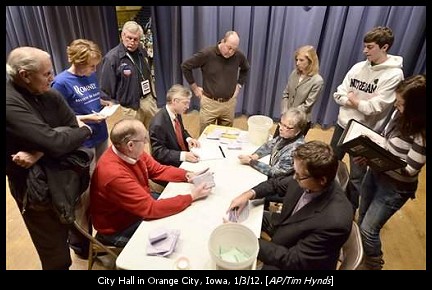
 Thanks to the transparent, open counting process at Tuesday's night's Iowa GOP Caucuses, and a Ron Paul supporter who was paying close attention to the results, we may now be learning that Rick Santorum, not Mitt Romney, actually won the "First-in-the-Nation" Iowa Caucuses this week.
Thanks to the transparent, open counting process at Tuesday's night's Iowa GOP Caucuses, and a Ron Paul supporter who was paying close attention to the results, we may now be learning that Rick Santorum, not Mitt Romney, actually won the "First-in-the-Nation" Iowa Caucuses this week.













